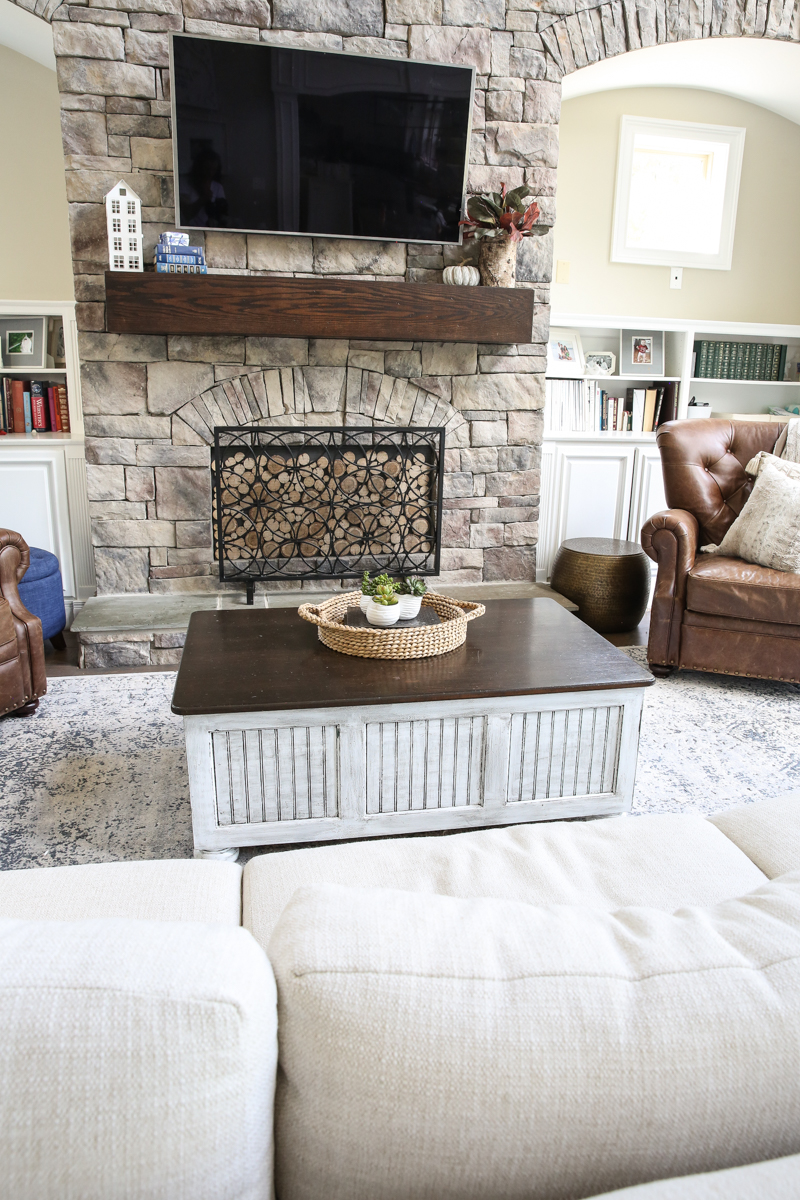Glazing. That is what I wanted to talk about today. It’s a very specific look for furniture and since the ‘distressed’ look is popular (especially with the farmhouse vibe crowd), I wanted to share a tutorial on how to glaze because it is very simple and also it is great for previously painted furniture.
So first what is the difference between glazing and distressing?
Glazing is a color ADDED to a painted piece of furniture to give it character, dimension and to bring out details of the piece.
Distressing is REMOVING paint/stain to expose wood or a layer of paint or stain to give it character, dimension or to bring out details of the piece.
Distressing is very popular because there are SO many ways of doing it. You can do the sandpaper method, the vaseline method, the layering method….all of them give different looks to the final piece.
Glazing is great if you have a piece of furniture with multiple layers of paint that you don’t want to see but you still want that detailed character. You can also use polyurethane over a glaze which you can not do with a wax. So in short….if you have a piece of furniture and it is painted, glazing might be a great fit for you!
Our coffee table is previously glazed (see the dark parts in the grooves?) and then also distressed (see the exposed white parts near the center?). Since the plan is to build a new coffee table, I thought I would use this previously painted piece to demonstrate how to use glaze.
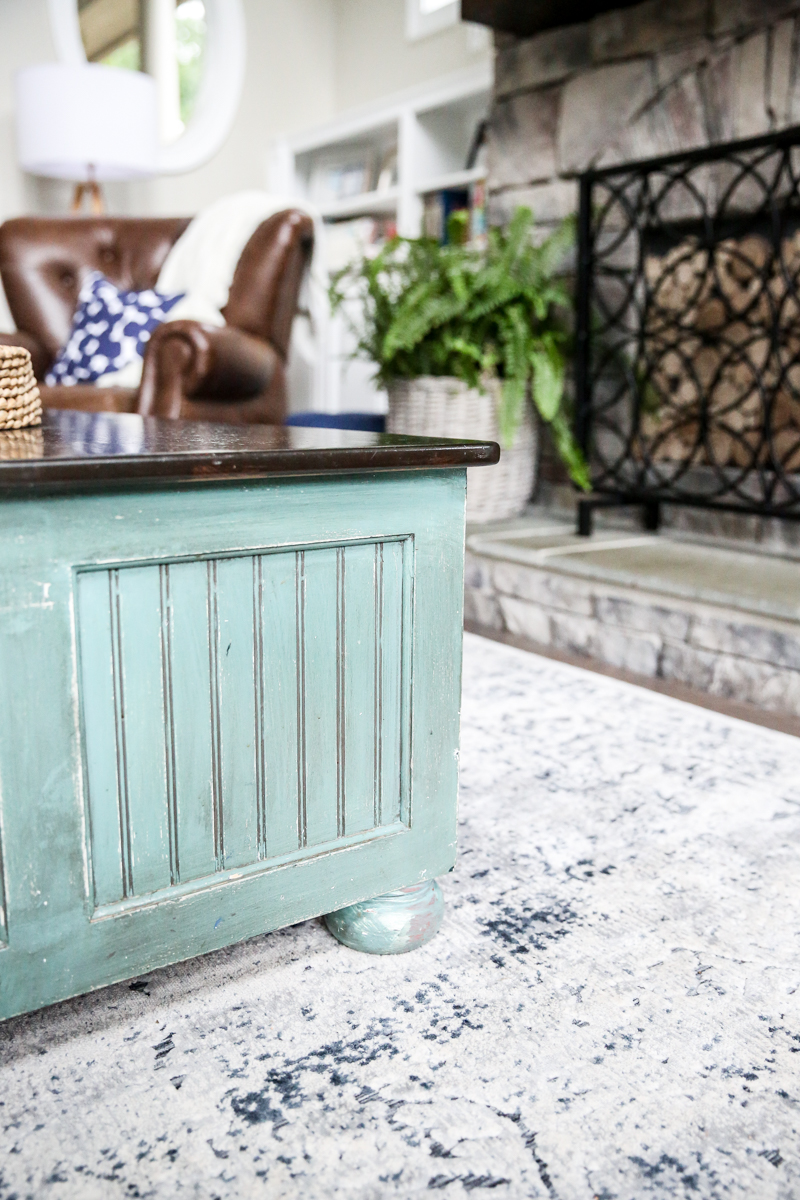
Since I was gonna show how to get the table to be a completely different look, I needed to paint over all that teal colored paint. And this is how it turns out…
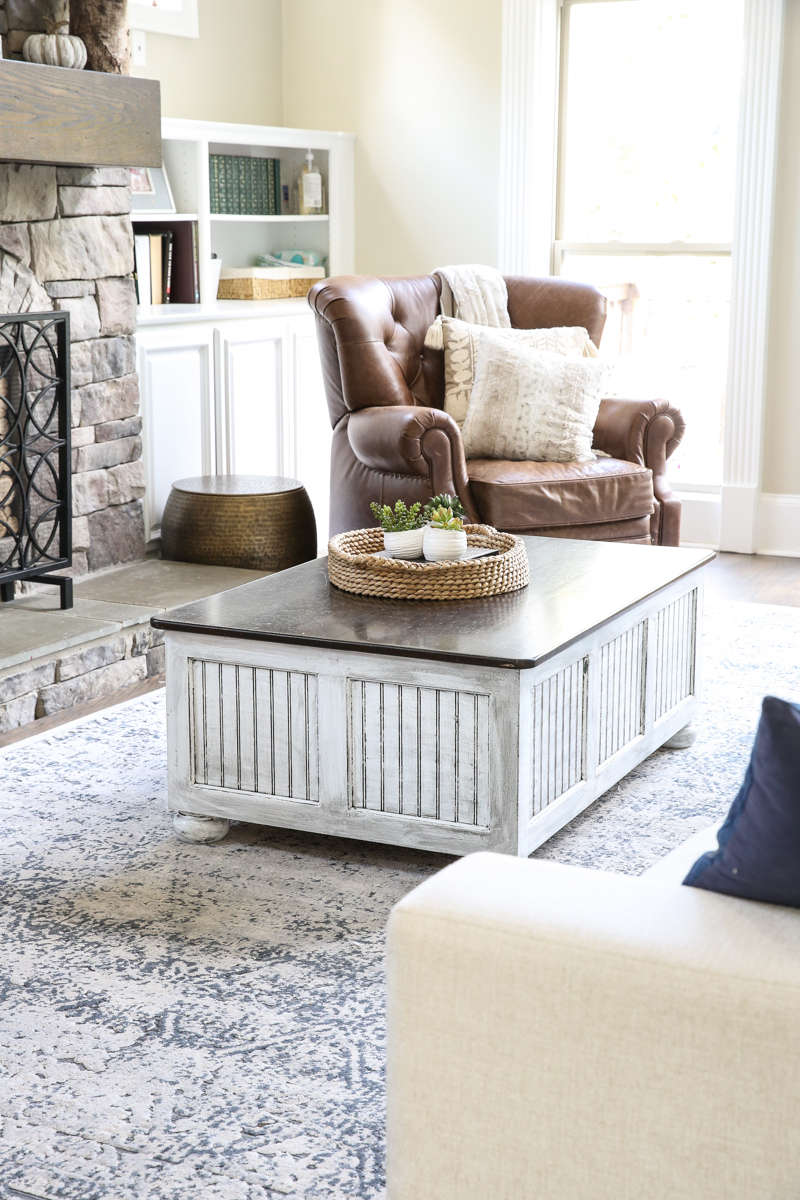
I did a quick sanding of the surface (just to get it to adhere) and then broke out the semi-gloss paint. I used Behr’s Premium Plus in Ultra bright white (it’s the paint we use on our trim so I had lots leftover).
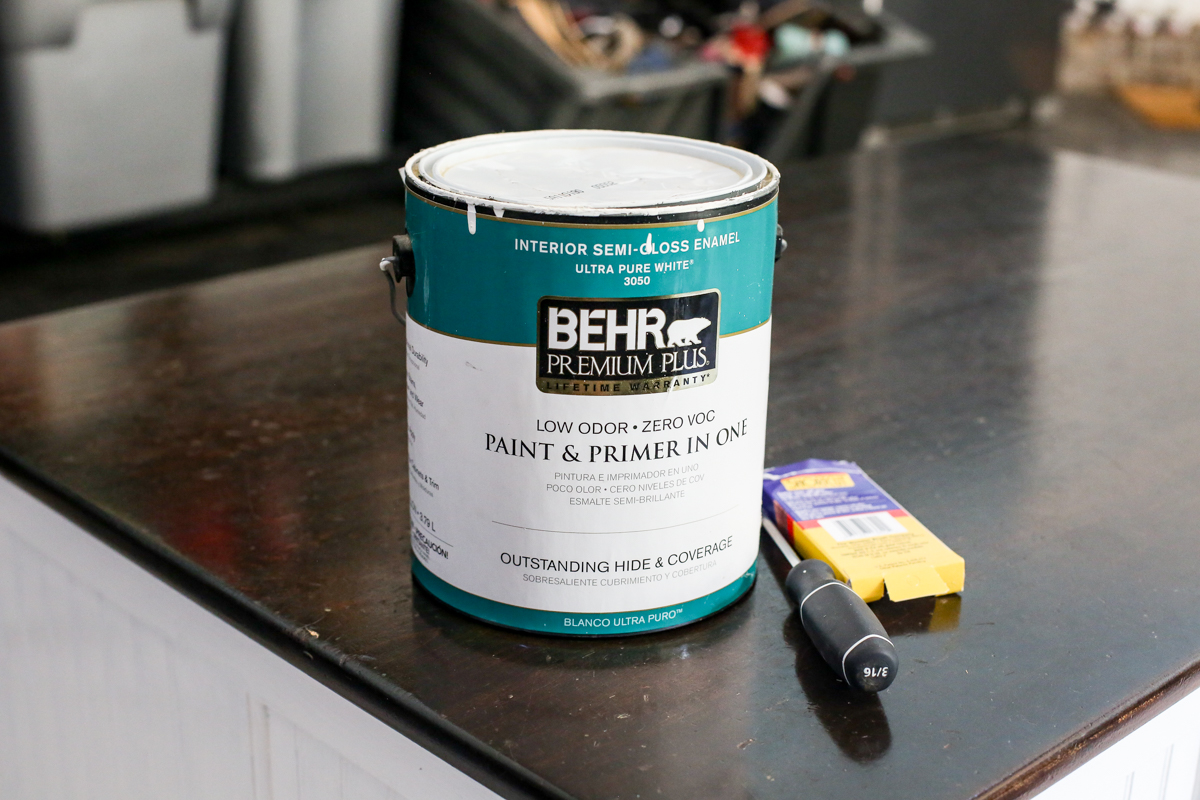
Since I am covering a darker color with a lighter color, it will require multiple thin coats of the white.
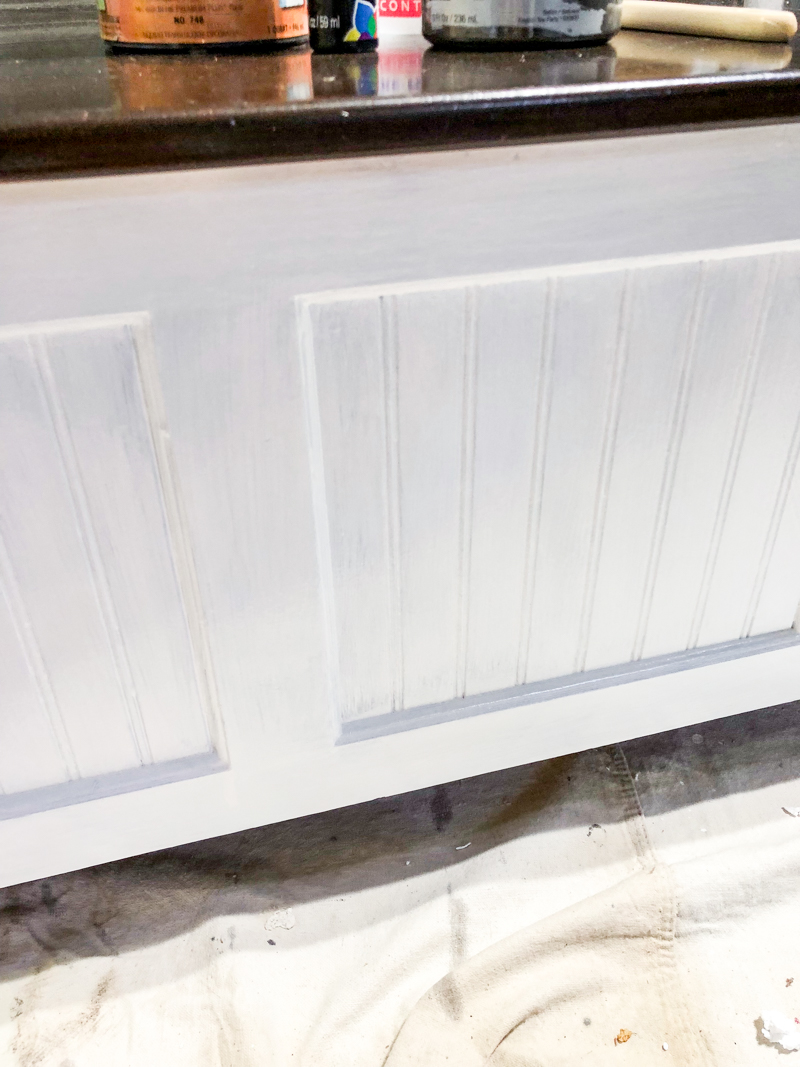
BEGINNER TIP: When repainting any piece of furniture, remember to prep for adhesion first and clean and then do multiple thin coats.
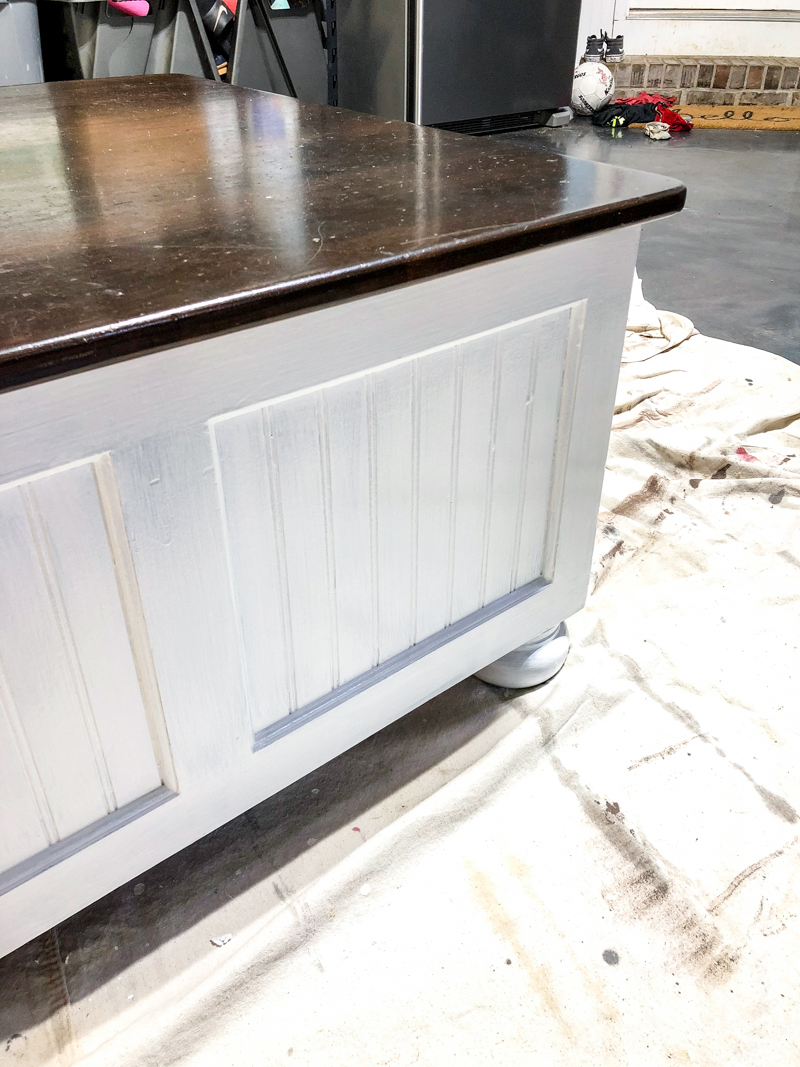
Once you are done painting, you can choose to keep it this color (I would personally seal it with a poly, a wax, etc.) but I would sand a little first with 400 grit sandpaper for a smooth finish.
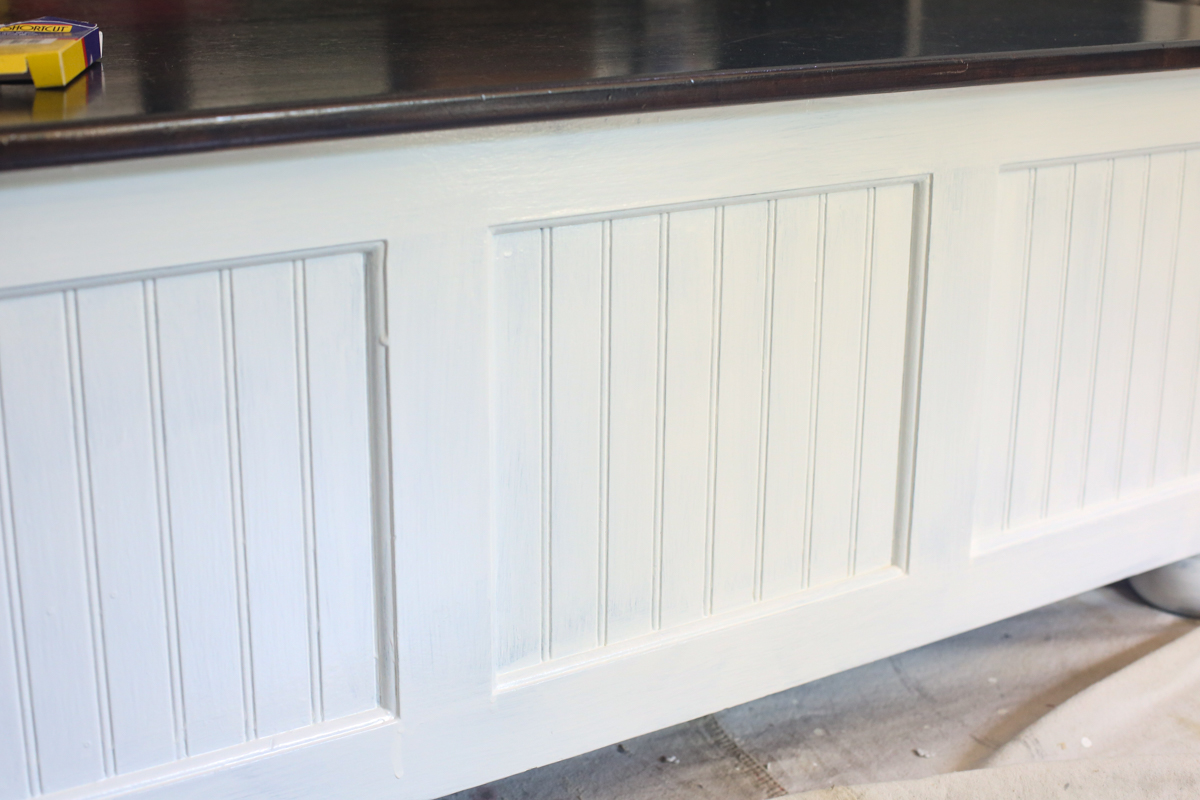
Or you can glaze! I am excited to show you this process because it is super easy and basically foolproof.
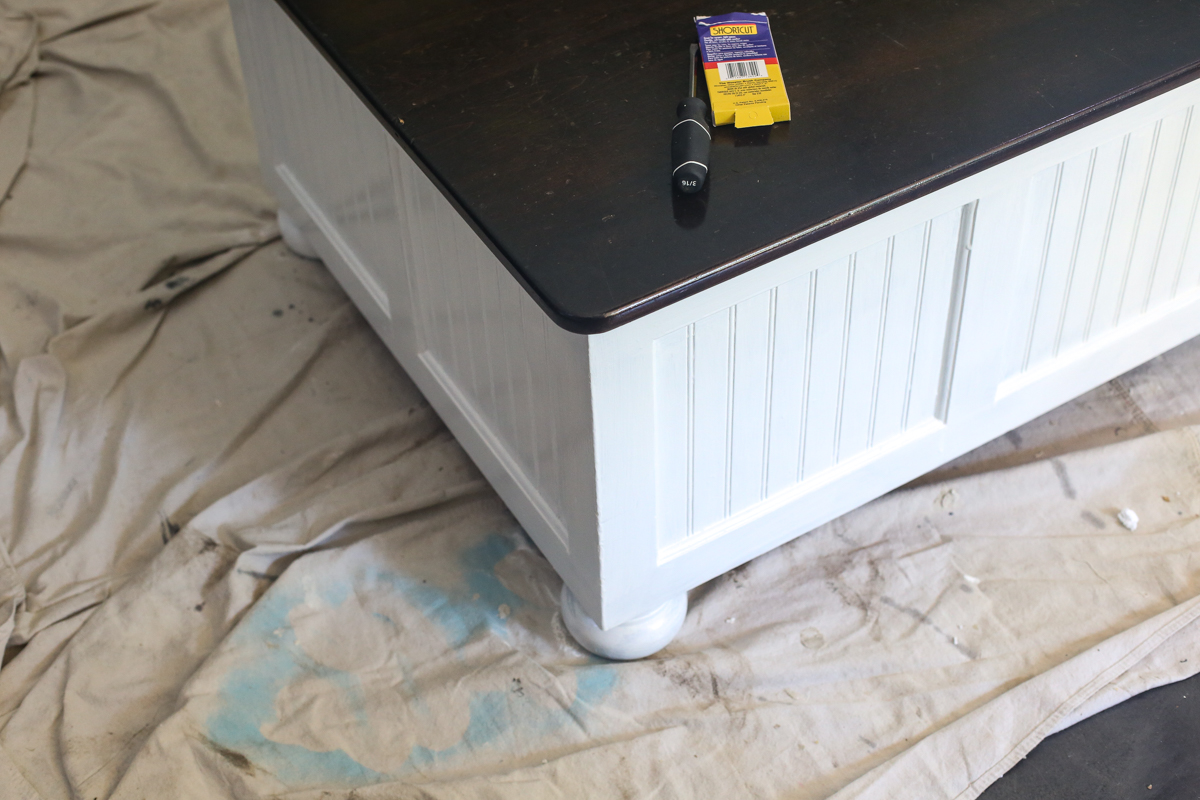
You will need your glazing medium (mine is this Behr Premium Plus Faux Glaze), some acrylic paint (go with either black or brown), a mixing container, and a paint brush and about ten billion paper towels 🙂
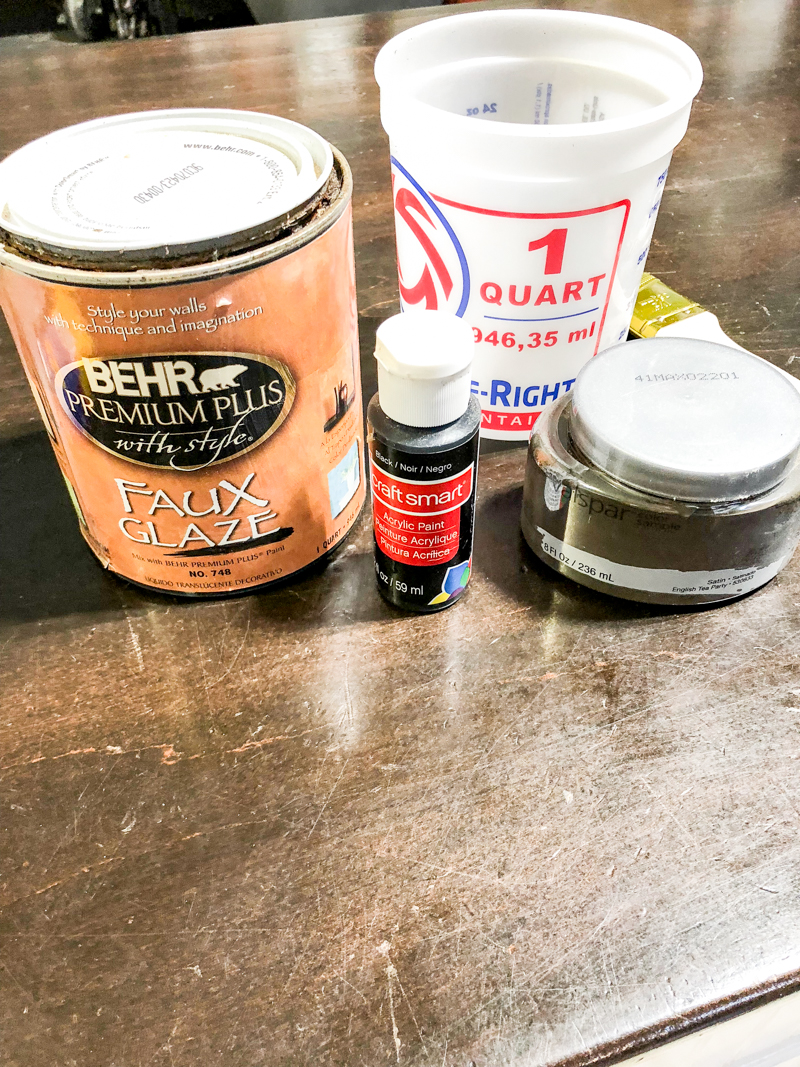
Pour a VERY small amount of glaze into your mixing container. I did 4 oz but I could have done half that.
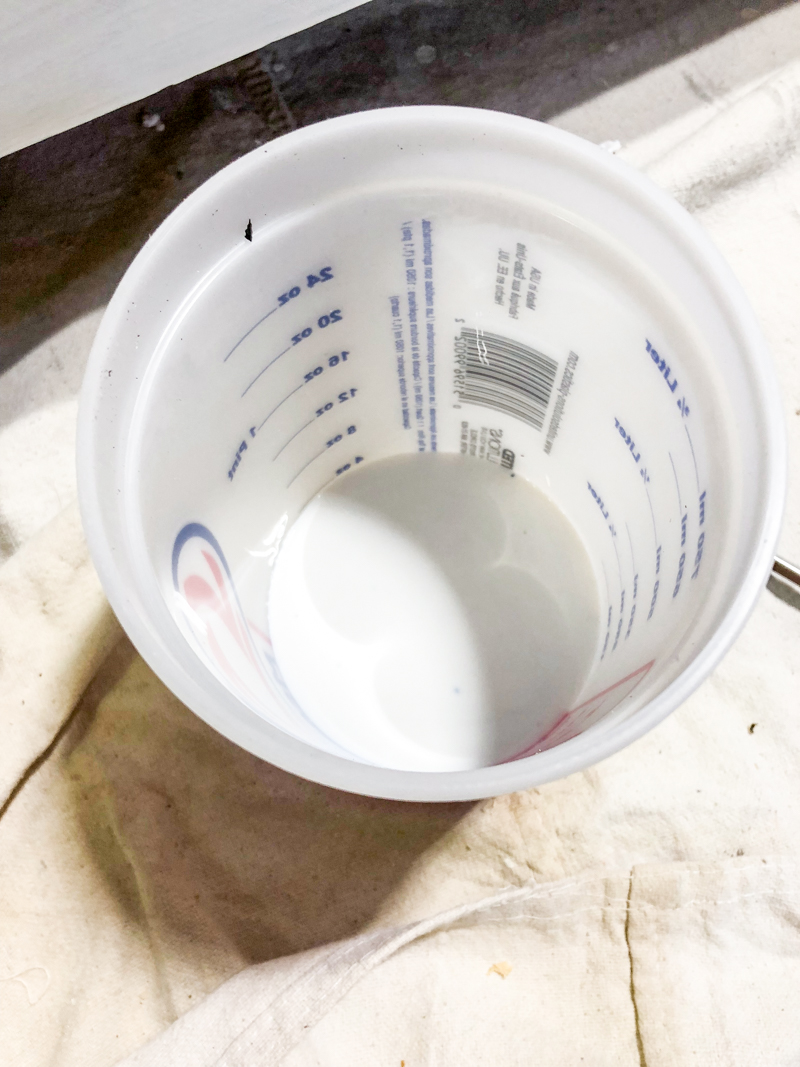
Then I added the color. The acrylic paint that I used was just the cheap craft paint but you can use any kind that has black or brown.
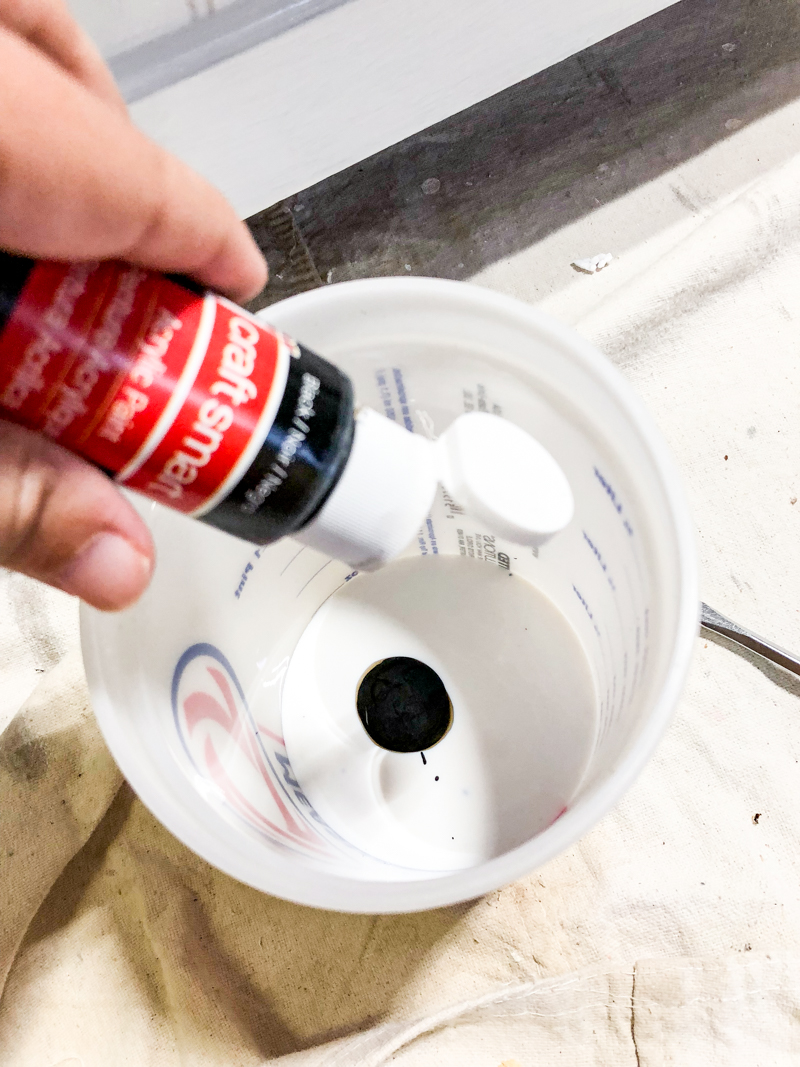
I also used a little of this warm brownish gray color to help warm it up.
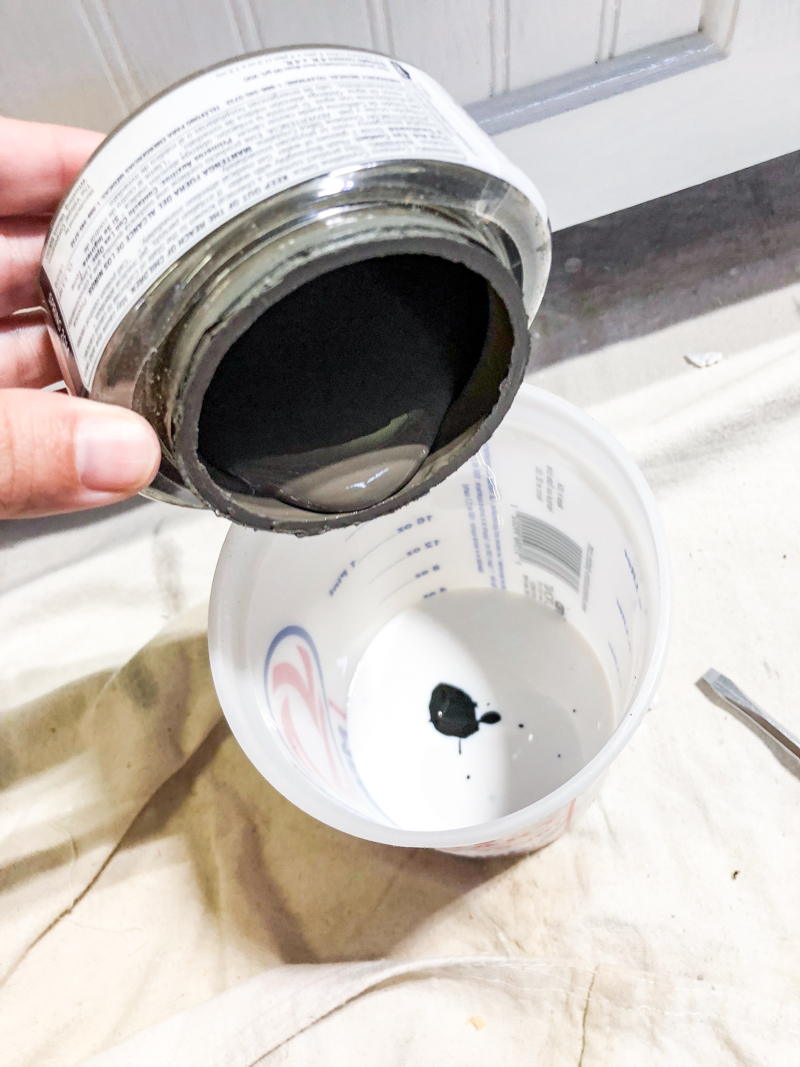
Then you just mix it up!
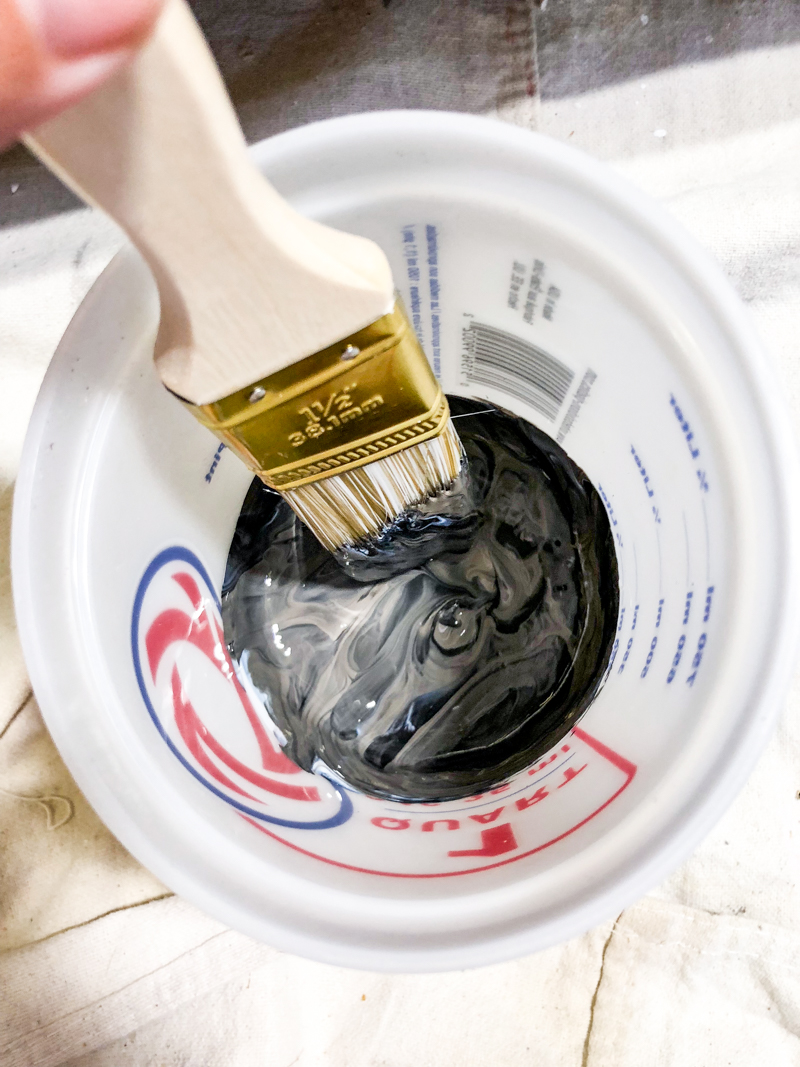
You want the glaze medium and the colors to be uniformly mixed so keep mixing.
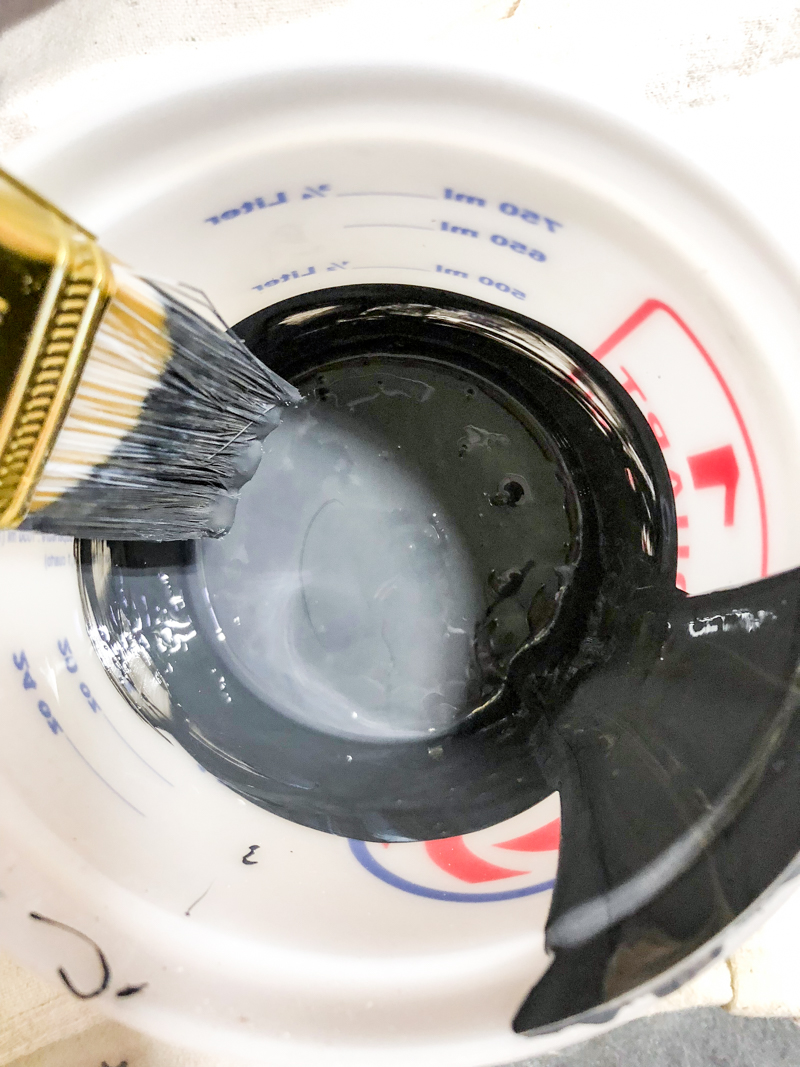
Then it’s time for application. This is the easiest part. Just slop it on there and spread it out. The hardest part is making sure you get it in the crevices and cracks and all the areas that you want to pop.
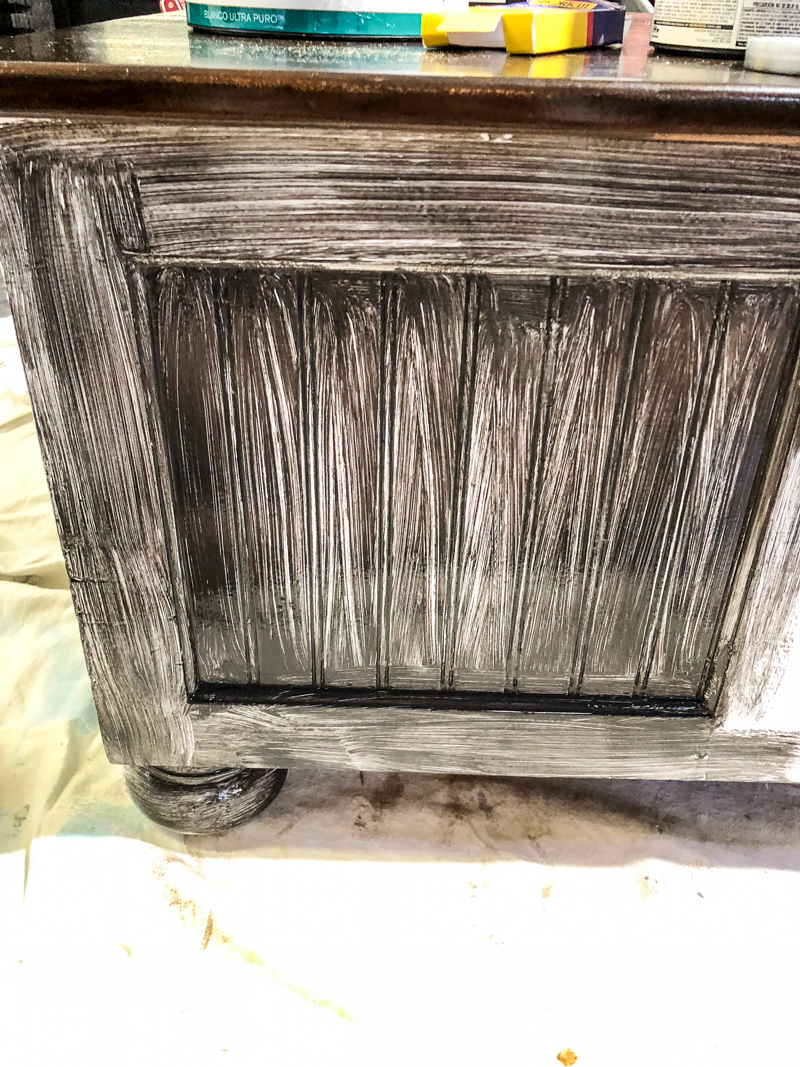
Wipe in both directions to remove almost 95% of the glaze. It won’t take long before it starts to dry so if an area does dry too much, use a misting squirt bottle with water to lightly wet the area and then wipe with a paper towel.
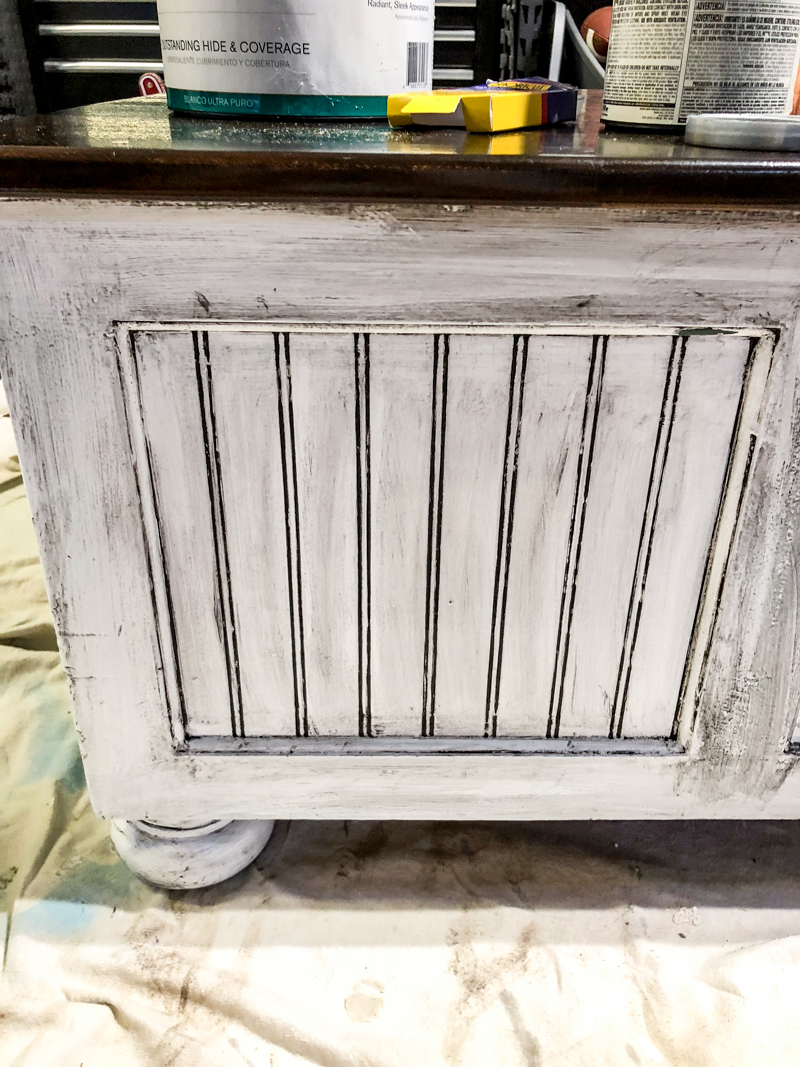
This is white paint with a dark gray glaze. If I chose to put poly on top to seal it, it would warm it all up to a creamier white.
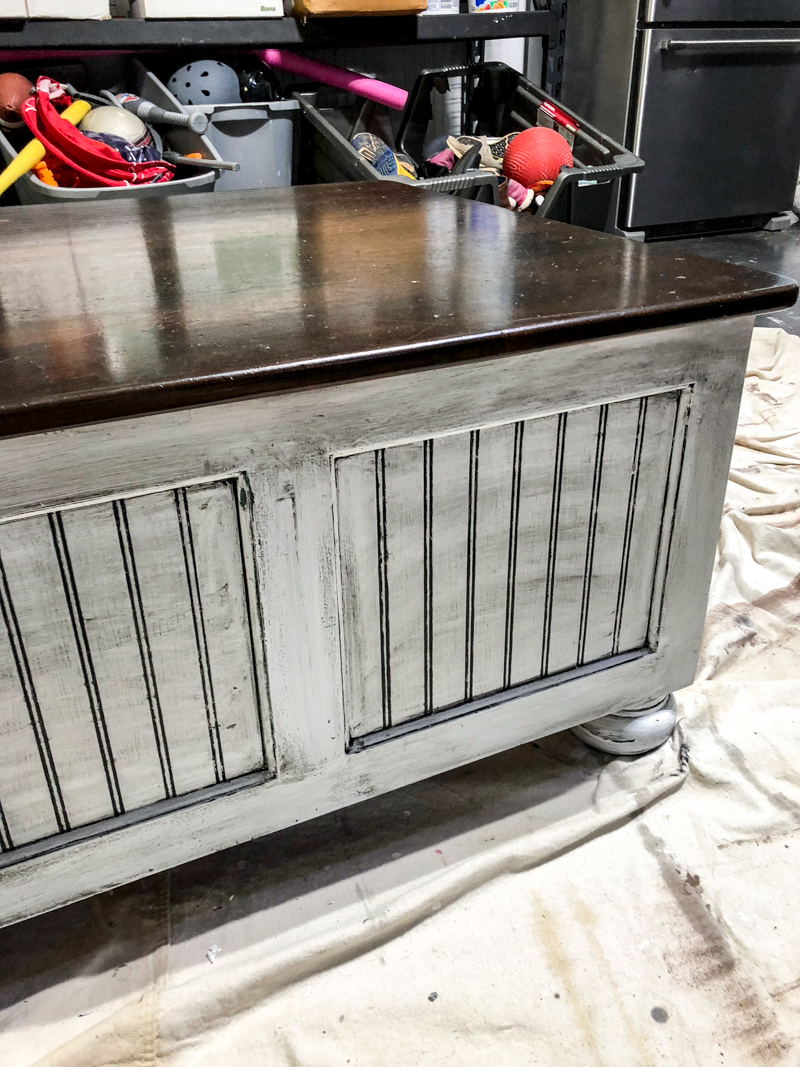
And now for the before….
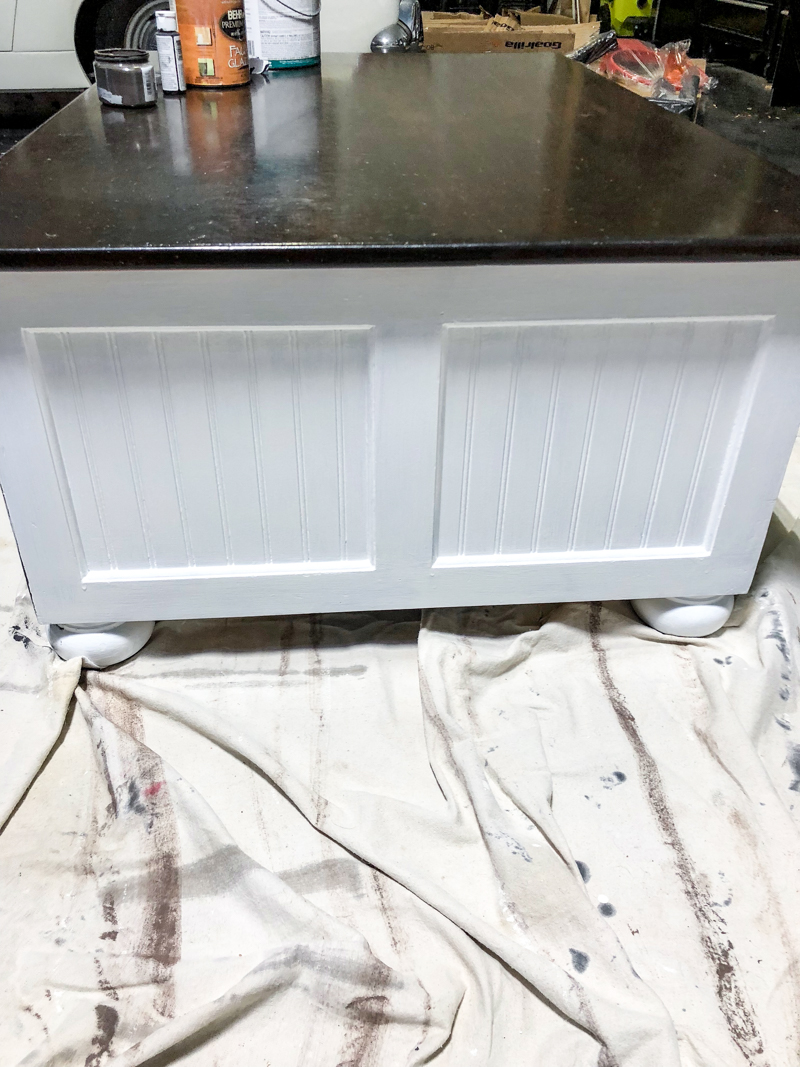
And after….
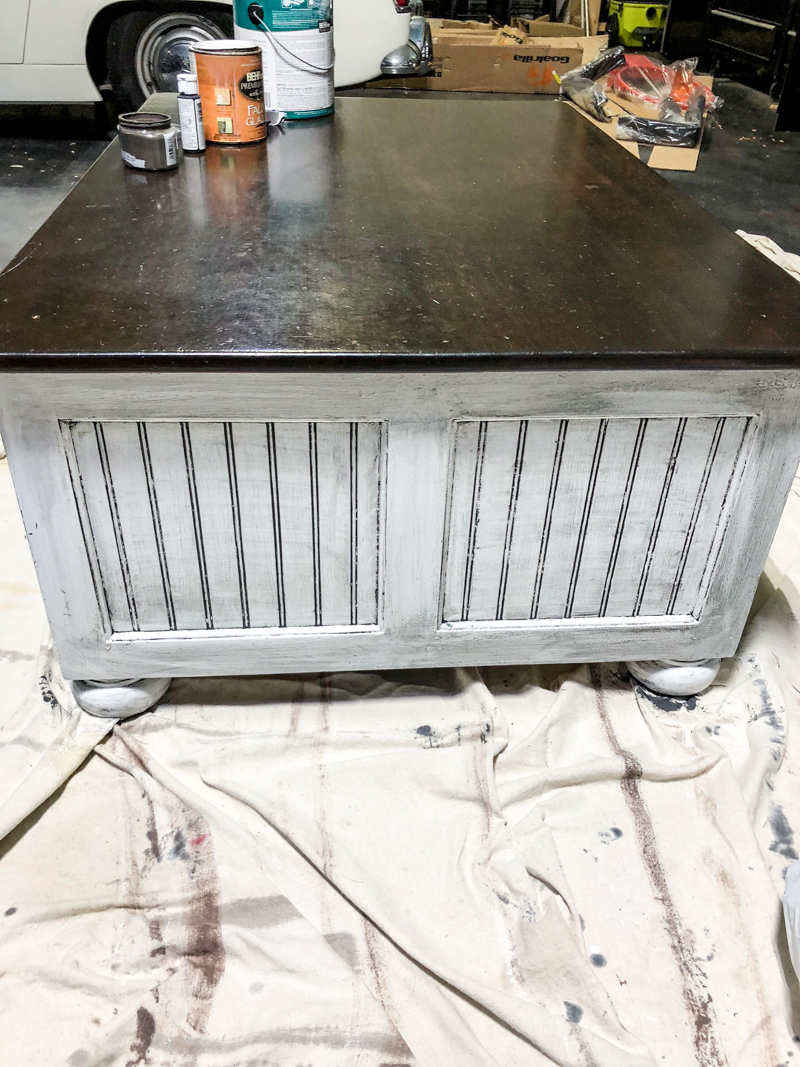
And here are a few shots of it in place….
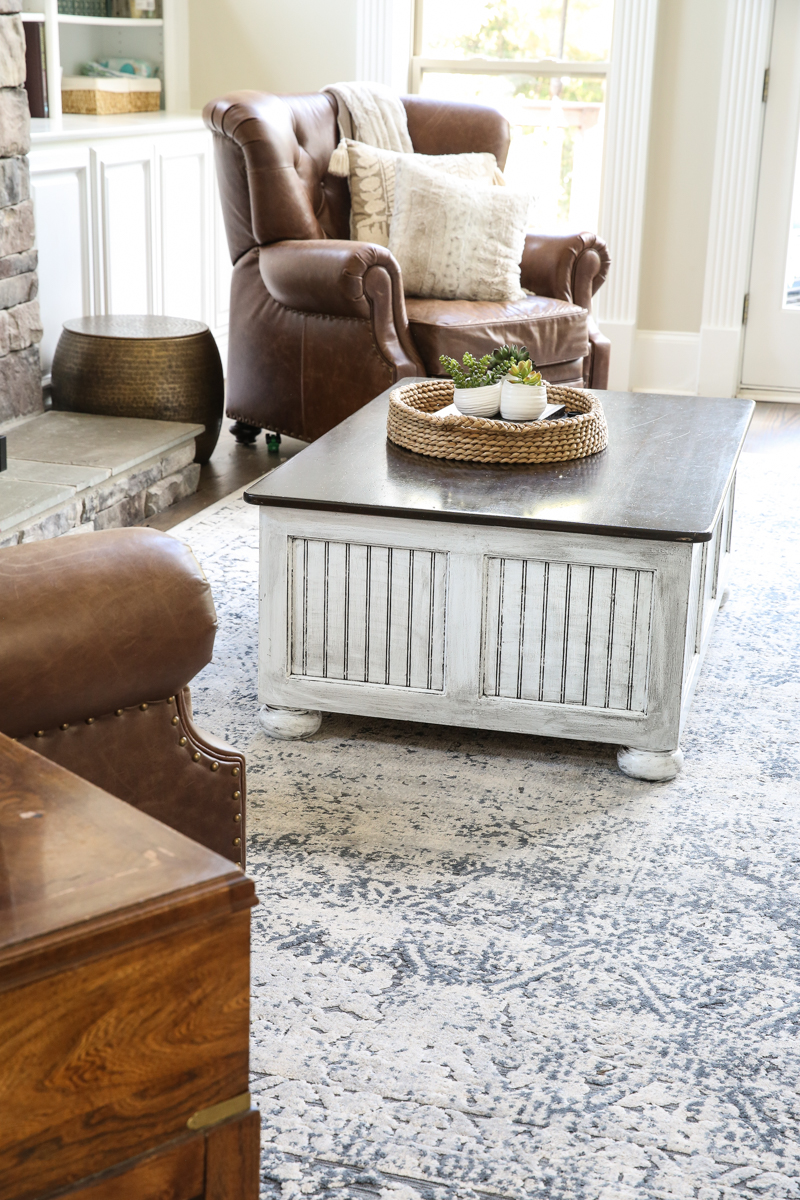
The best part is that the coffee table will show zero dirt if my kids do their normal thang 🙂
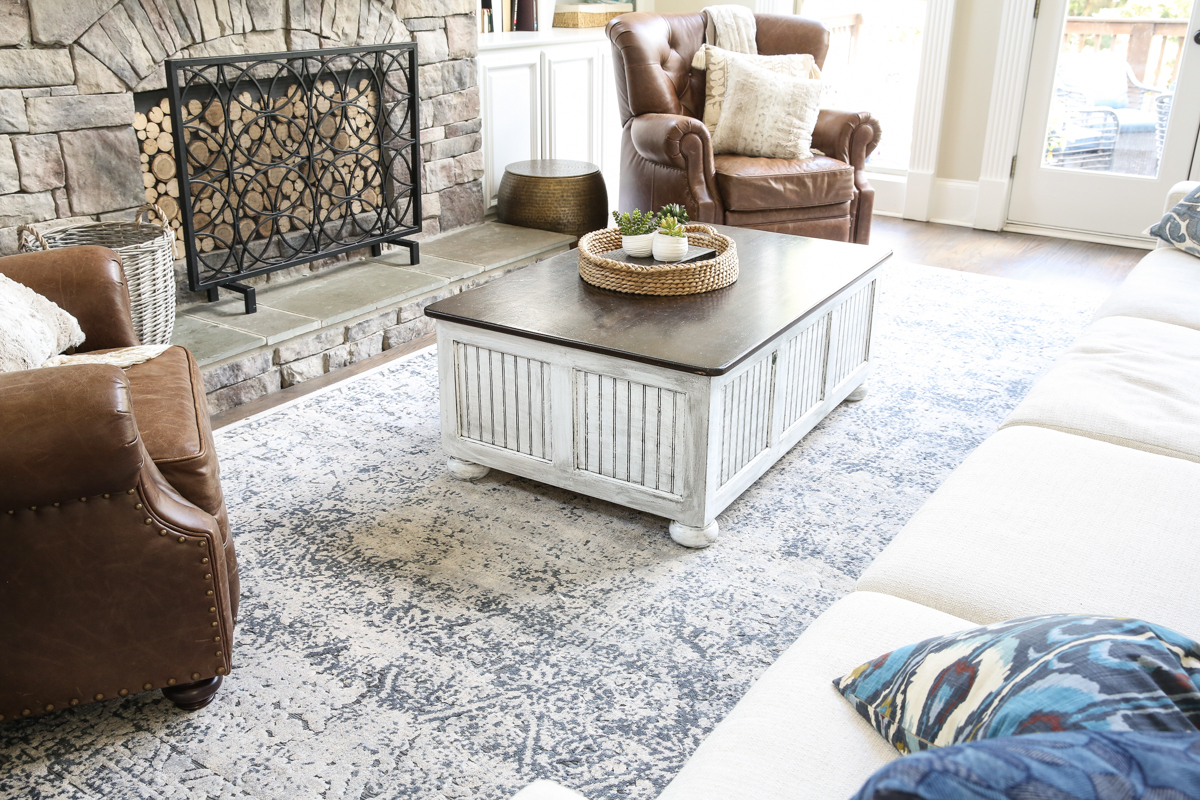
And the details of the piece pop! This is of course a temporary thing but I wanted to show you this technique because it is something that often gets overshadowed by it’s more popular cousins! But regardless of the popularity…it has a place in the furniture makeover world.
